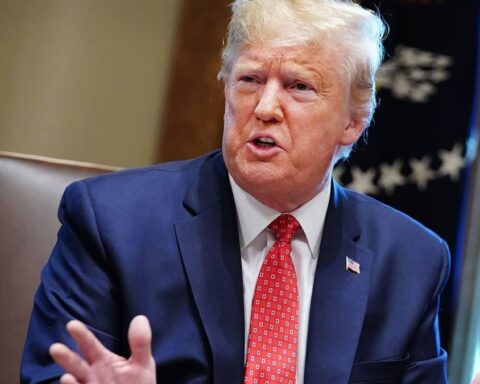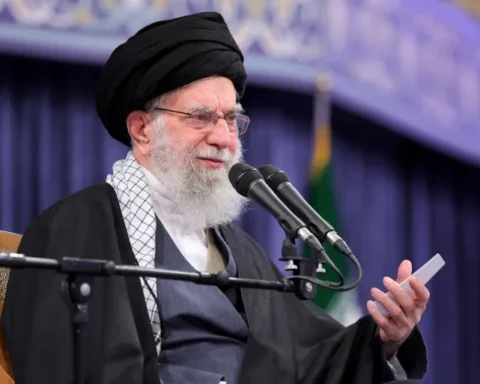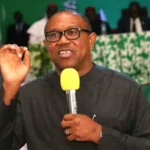The town of Bellavista, perched on the Italian coast, was known for its vineyards, its warm sunsets, and its proud Catholic heritage. At the center of its cobblestone square stood a majestic cathedral dedicated to St. Michael the Archangel. Its soaring bell tower had guided fishermen back to shore for centuries.
But in recent years, Bellavista’s peace had been overshadowed by the presence of Giovanni DeLuca, a self-made millionaire who owned shipping companies, luxury hotels, and much of the land along the coast.
Giovanni was a man of contrasts. To some, he was a hero—he created jobs, sponsored festivals, and restored old villas. To others, he was ruthless—greedy, controlling, and quick to crush anyone who stood in his way.
His one open disdain was for the Church. “Priests live off the poor,” he scoffed at dinners. “And bishops—well, they pretend to bless, but they only count coins.”
Despite his contempt, Giovanni knew the Church still wielded influence in Bellavista. And that influence would soon clash with his ambitions.
Giovanni planned to expand his shipping empire by building a new luxury port. But the proposed site included land owned by the diocese and part of the cathedral’s old courtyard.
The bishop of the region, Bishop Carlo Benedetti, a man in his sixties with gentle eyes but unshakable integrity, refused to sell. “This land belongs to God’s house,” he said firmly. “It cannot be given away for profit.”
Giovanni was enraged. He tried bribes, then threats, but Bishop Carlo stood firm. “I answer not to you, but to God,” the bishop replied.
Whispers spread through Bellavista. Some admired the bishop’s courage. Others feared Giovanni’s wrath. The tension grew until one fateful day when the two men would meet face to face—in front of the entire town.
Every September, Bellavista celebrated the Feast of St. Michael with a grand procession. The bishop would bless the fishing boats, families would gather for Mass, and the streets would be filled with music and prayer.
That year, Giovanni decided to attend—not out of devotion, but out of defiance. He arrived in a gleaming black car, wearing an expensive suit, flanked by bodyguards.
As the bishop finished blessing the boats, Giovanni pushed through the crowd, his voice loud and mocking.
“Tell me, Bishop,” he sneered, “how much for your courtyard? Or do you prefer to keep your people poor while you cling to stones?”
Gasps rippled through the crowd. Bishop Carlo remained calm. “This courtyard is holy ground. It is not for sale.”
Giovanni smirked. “Everything has a price.”
Then, in a moment that would shock Bellavista forever, Giovanni lifted his hand and slapped the bishop across the face.
The square fell silent. Mothers clutched their children. Fishermen dropped their nets. The choir stopped mid-hymn.
Bishop Carlo staggered slightly but did not retaliate. Slowly, he raised his hand—not to strike back, but to make the Sign of the Cross.
“I forgive you,” he whispered.
The words pierced the silence.
Giovanni’s smirk faded for a moment, but he quickly covered it with arrogance. “Forgive me? You should fear me!” he barked, turning to the crowd. “This Church is weak. I control this town now.”
But even as he spoke, something stirred in Giovanni’s heart—something he could not suppress. A sudden tightness gripped his chest. His vision blurred. Sweat beaded on his forehead. He stumbled, clutching the rail of the cathedral steps.
The crowd gasped. Some rushed forward, but Giovanni waved them off, humiliated. “I’m fine!” he growled. Yet inside, he was not fine at all.
That night, Giovanni could not sleep. The bishop’s words—“I forgive you”—echoed in his mind. He tossed and turned, haunted by the look in the old man’s eyes.
When he closed his eyes, he saw flashes: the face of the Virgin Mary, statues weeping, flames consuming his empire, and his own hand striking again and again.
He rose from bed, poured himself whiskey, and muttered, “Why do I feel this way? I did nothing wrong. He deserved it!”
But no matter how much he drank, no matter how much he tried to drown the memory, the guilt gnawed at him like fire.
By morning, Giovanni was trembling—not from illness, but from something deeper. For the first time in his life, he felt powerless.
On the second night after the slap, Giovanni had a dream.
He found himself standing in the cathedral courtyard, the very place he wanted to buy. But instead of people, the courtyard was filled with flames. Statues crumbled. Bells tolled endlessly.
And there, in the center, stood Bishop Carlo—not wounded, not weak, but radiant in white, holding a cross.
Giovanni fell to his knees in the dream, but his mouth could not speak. Then he heard a voice—not the bishop’s, but a thunderous, otherworldly voice:
“You struck My servant. When you raised your hand against him, you struck Me. Repent, Giovanni, or all you treasure will be taken.”
He awoke drenched in sweat, gasping for breath. For the first time in decades, Giovanni prayed—though clumsily. “If You are real… don’t take everything from me. Give me time.”
The next day, Giovanni did something no one expected. He drove back to the cathedral. Without his bodyguards, without his pride, he walked into the rectory and asked to see Bishop Carlo.
The priest who answered the door nearly refused him, but Bishop Carlo himself appeared. His face still bore the faint red mark of the slap, but his eyes were kind.
“You have come,” the bishop said softly.
Giovanni froze. Words caught in his throat. Finally, he blurted, “Why did you forgive me? I humiliated you. I mocked you. I—”
“Because Christ forgives me every day,” the bishop replied gently. “How could I not forgive you?”
Giovanni broke. He fell into a chair, burying his face in his hands, sobbing like a child. “I don’t deserve forgiveness,” he muttered.
“None of us do,” Bishop Carlo said, laying a hand on his shoulder. “That is why it is a gift.”
From that day forward, Giovanni began to change. It was not easy—his pride resisted, his reputation faltered, and many in town doubted his sincerity. But slowly, he transformed.
He sold off part of his shipping empire and donated the proceeds to rebuild schools and hospitals.
He paid off debts for struggling fishermen and farmers.
He began attending daily Mass, always kneeling at the back, head bowed.
The people of Bellavista watched in astonishment. “Is this the same man?” they whispered.
But the most astonishing act came months later, during the Feast of St. Michael.
Before the entire town, Giovanni stood on the cathedral steps—the very place he had slapped the bishop. This time, his voice shook.
“My people,” he said, “I once struck the shepherd God gave us. I shamed this town and mocked your faith. That day, I thought myself powerful. But I was nothing. The bishop forgave me when I did not deserve it. And through his forgiveness, I found God’s mercy.”
He turned to Bishop Carlo, who stood beside him. “Bishop, before God and before all, I beg your forgiveness again.”
Bishop Carlo embraced him. The crowd erupted in tears and applause.
It was a moment Bellavista would never forget.
Years passed, and Giovanni lived no longer as the tyrant of Bellavista, but as its benefactor. He funded orphanages, restored the cathedral, and spent his final years in humble service.
When he died, thousands attended his funeral—not to honor his wealth, but to remember the man who had once raised his hand in pride, only to lower it in repentance.
And so, the story of Giovanni DeLuca became a lesson for generations:
Pride strikes, but mercy heals.
When you wound the Church, you wound Christ—but His forgiveness is greater still.
The slap that once shamed Bellavista became the seed of its renewal.
The story of Giovanni reminds us that no sin is beyond forgiveness, no pride too great for God to humble, no soul too lost for grace to reach.
He struck a bishop, but in that moment, he struck Christ Himself. Yet mercy triumphed.
And it is mercy—not wealth, not power—that endures forever.
If this story inspired you, please LIKE, SHARE, and SUBSCRIBE for more miraculous Catholic stories, faith testimonies, and inspirations that reveal how God still changes hearts today.



























